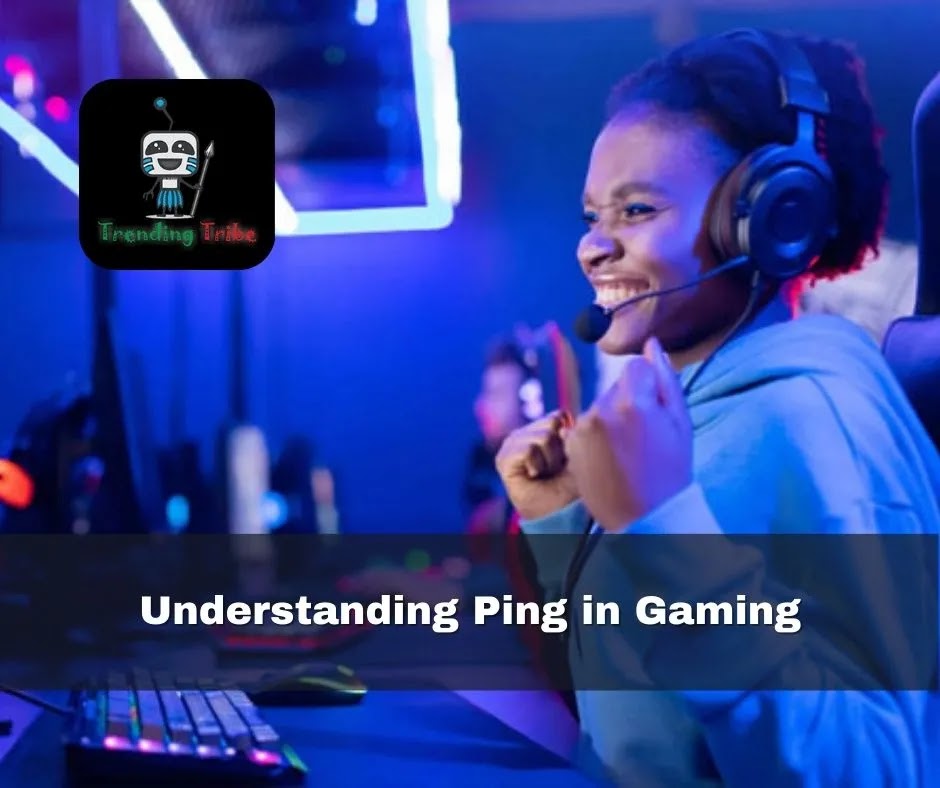Ping is an important concept in gaming, and understanding it can help you improve your gaming experience. In this comprehensive guide, we'll discuss what ping is, how to measure it, and how to use it to your advantage. We'll also touch on the common problems that arise when you have a high or low ping, and offer some solutions. By the end of this guide, you'll have a better understanding of what ping is and how it affects your gaming performance.
Ping is an essential element in gaming, as it measures the speed at which your device communicates with the game server. It is a key factor in determining how smooth and responsive your gaming experience will be. In this article, we will provide a comprehensive guide to understanding ping in gaming, including what it is, how it affects your gameplay, and how you can optimize your ping for optimal performance.
What Is Ping?
Ping is a term used in the gaming industry to describe the latency, or delay, between two devices. It is measured in milliseconds (ms) and is a crucial factor in determining the quality of your gameplay experience. The lower the ping, the faster the response time and the smoother your gameplay experience. A high ping can result in lag, delays, and disconnections, which can be very frustrating and have a negative impact on your overall gaming experience. Ping is most commonly used when playing online games, but it can also be used when connecting to other types of servers, such as voice or video chat services.
The ping time measures the round-trip time for messages sent from the client device to the server and back. This time can vary greatly depending on many factors, including the distance between the two computers, the type of network connection being used, and any hardware or software issues that may be present. In general, the shorter the distance between you and the game server, the lower your ping will be.
Factors that Affect Ping
- Internet Connection: The quality of your internet connection is a significant factor in determining your ping. A slow or unstable connection can result in high ping, while a fast and stable connection can result in lower ping.
- Distance from Server: The distance between your device and the game server can also affect your ping. The further away you are from the server, the higher your ping is likely to be.
- Network Congestion: Network congestion can also lead to high ping during gameplay. When many users are connected to the same server, it can lead to congestion and higher ping for everyone.
- In-Game Settings: In-game settings can also affect your ping. For example, playing a game with high graphics settings can cause your device to work harder, resulting in higher ping.
How to Check Your Ping
- Check your game's built-in ping checker: Most games have a way to check your ping in the game itself. It's usually located in the game's settings or options menu.
- Use an online ping testing tool: There are many online tools that you can use to measure your ping to a game server. To use one of these, simply type in the IP address or domain name of the game server you want to test and hit enter.
- Connect to the game server and check your ping: If your game doesn't have a built-in ping checker, you can connect to the game server and see what your ping is. This method will only work if the game allows you to join the game without actually entering it.
- Measure latency with a third-party tool: Some games provide external tools for measuring your latency. These tools can be found on the game's website or third-party sites.
Once you've checked your ping, you'll know if your connection is good enough for playing the game without any lag. If your ping is too high, there are several things you can do to reduce it. Read on for more information about how to improve your ping.
Improving Your Ping
- Upgrade your internet connection: A faster and more stable connection can result in lower ping and a smoother gaming experience.
- Switch to a wired connection: Wi-Fi connections can be unstable and result in high ping. Switching to a wired connection can improve your ping by providing a more stable connection.
- Close background applications: Background applications can use up bandwidth and result in high ping during gameplay. Closing all unnecessary applications can free up bandwidth and result in lower ping.
- Change your in-game settings: Adjusting your in-game settings can also help improve your ping. Lowering graphics settings can reduce the strain on your device and result in lower ping.
Keynote
Ping is an important factor in gaming and understanding how it works is essential for having a positive experience. By taking the time to upgrade your internet connection, switch to a wired connection, close background applications, and adjust in-game settings, you can significantly improve your ping. This can lead to fewer lag spikes and better overall performance in online games. Keeping these tips in mind will help ensure that you get the most out of your gaming experience.






0 Comments